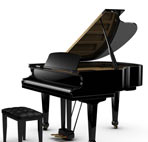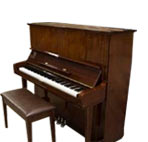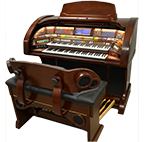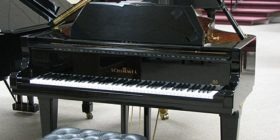 Ludwig van Beethoven was born in Bonn, Germany in 1770, to Johann van Beethoven and Maria Magdalena Keverich. Although Beethoven’s exact birth date is not known, his family celebrated it on December 16. Ludwig’s first musical instruction came from his father Johann who was said to have been a harsh instructor. Johann later asked his friend, Tobias Pfeiffer, to teach his son. It seems that the harsh treatment continued, as Johann and his friend would come home late on occasion to pull young Ludwig from his bed to practice until morning.
Ludwig van Beethoven was born in Bonn, Germany in 1770, to Johann van Beethoven and Maria Magdalena Keverich. Although Beethoven’s exact birth date is not known, his family celebrated it on December 16. Ludwig’s first musical instruction came from his father Johann who was said to have been a harsh instructor. Johann later asked his friend, Tobias Pfeiffer, to teach his son. It seems that the harsh treatment continued, as Johann and his friend would come home late on occasion to pull young Ludwig from his bed to practice until morning.
Ludwig’s talent was recognized early on, and by 1778 he was learning to play the organ and viola in addition to his piano studies. His most important teacher in Bonn was Christian Gottlob Neefe, a Court organist. It was Neefe who helped Beethoven publish his first piece of music.
In 1787, young Beethoven decided to travel to Vienna, hoping to meet and study composition with Wolfgang Amadeus Mozart. It is not clear if he succeeded in meeting or studying with Mozart. By his twenties Beethoven began to suffer from hearing loss. He did, however, continue to compose, conduct and perform, even after he was completely deaf. One story recalls that after conducting the premiere of his Ninth Symphony he had to be turned around to see the overwhelming applause of the audience. When he heard nothing, he began to weep.
Ludwig van Beethoven’s most popular pieces are his Fifth Symphony, Für Elise for piano solo, and his Ninth Symphony, which includes the melody Ode to Joy. He is remembered as an important composer in the transitional period between the Classical Era and Romantic Era in music and continues to be one of the most famous and influential composers of all time.











Leave a reply